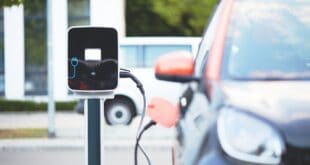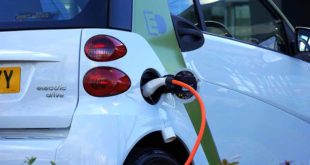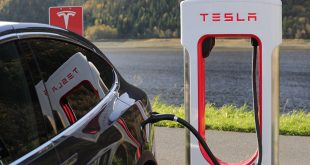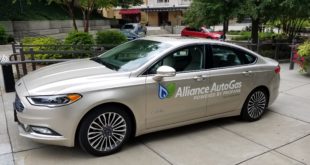If I charge up an electric vehicle, won’t I be simply transferring my pollution to a power station?
Yes! You will, but fortunately not nearly as much. Even though there is a loss of electricity between the power station and your home, it is still vastly more efficient to power an electric car. The Tesla roadster is a US based electric sports car which is about 10 times more energy efficient that its equally performing combustion driven sports car rivals.
Why? how can electric cars use less energy?
Through regenerative breaking, electric car batteries are charged every time the car slows to a stop for an intersection or traffic lights (which is quite often during city driving). An electric car does not use fuel when stationary which can be the case in peak hour traffic congestion. The electric motor itself is many times more efficient as it involves a single rotating part with very minimal frictional and heat losses. A petrol powered motor uses small explosions to drive pistons and a crank shaft. The heat loss in a combustion engine is very high. Through economies of scale, combustion in a power plant makes very effective use of heat to drive turbines and recapture waste heat.
Presently most electric cars will have to make do with available infrastructure, however solar PV can be added to the roofs of your home, workplace and carparks in order to give you 100% environmentally friendly energy. You will be essentially driving your car off the sun and contributing to a green sustainable friendly future.
Are electric cars slow?
There are several electric cars on the market which have certainly disproved this myth. Have a look for information on the Tesla and you will see that this consumer level vehicle can do 0-100 in only a few seconds rivalling the performance of a Lamborghini. Now these high end electric sports cars are priced at a premium, however they certainly show that electric vehicles do not have to be slow. In fact electric vehicles have instant torque from the moment you put your foot down, therefore offer incredible off the mark acceleration capabilities. Of course there are also the very cheap ‘golf buggy’ style electric vehicles which are fine for getting from A to B and are considerably cheaper to purchase, however not all EV’s are the same.
How much will it cost to run my electric car?
Not much at all thankfully! The fuel for an electric vehicle is very cheap, or in many cases free. A number of charge points in various cities around the world have offered free electricity to electric vehicle owners in order to research driving habits. Other companies have offered free recharge points as an incentive to park at their cafe/restaurant/shopping mall for the 20-30 minutes it takes to recharge your car. If you were spending 50 a week on fuel, then you may spend at most 5 if you purchase an electric vehicle.
Over 10-20 years, the premium on purchasing an electric vehicle often pays itself off through reduced fuel costs. Of course electric vehicle battery technology is improving constantly as is the price of petrol and diesel increasing, so our payback period for the initial investment is actually decreasing as we speak.
Through vehicle to grid (V2G) technology, the local electricity provider can ‘borrow’ some of your battery charge during critical peak demand periods and pay you money for that energy. In some schemes this will pay for your electricity in low periods and you will essentially have free fuel!
What is the range like on electric vehicles? What if I run out of electricity… will I get stranded?
Range is one of the main qualms of electric vehicle owners. Some have a range of around 200 miles, but still need to be recharged for about 30 minutes in order to continue on their journey. There are some options including recharge points, or even small generators in the car boot or a small connected trailer which can combat these fall backs however. There are some exciting technologies on their way including the lithium nickel battery and lithium air battery which both have potential energy densities of about 3 times that of lithium ion batteries. This will double or even triple mileage down the track without increasing the weight of the vehicle.
Should I buy an electric vehicle?
Yes! if you have the money, make the investment and join thousands of satisfied electric vehicle owners around the country. Technology is ever increasing and soon with petrol prices rising there will be real urgency to get on board the electric vehicle band wagon. There is also a heap of other information from DIY conversion enthusiasts and electric vehicle owners worldwide which it is worth checking before making your informed decision.
 Alternative Energy HQ solar power for homes, wind energy, and bio fuel issues
Alternative Energy HQ solar power for homes, wind energy, and bio fuel issues







